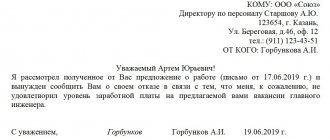A settlement agreement is a document in which the parties set out the terms of settlement of their dispute. An agreement can be drawn up when considering civil and arbitration disputes, in enforcement proceedings.
This document also has important consequences in the bankruptcy process of individuals. persons It describes the rules for repaying debts that both creditors and the debtor must comply with. Read about all the nuances of preparing and accepting agreements in our article.
Types of agreements
A settlement agreement is drawn up to resolve the dispute by agreement of the parties and to determine mutual rights and obligations.
Depending on the nature of the dispute, the document may be drawn up:
- when considering a civil or arbitration case in the courts
- in this case, the parties to the agreement will be the plaintiff and the defendant, and the document must be approved by the court; - within the framework of enforcement proceedings
, the document is drawn up by the claimant and the debtor, and the procedure for its approval is not defined by law; - during bankruptcy
- an agreement is drawn up between creditors and the debtor, and to enter into force the document is approved by the arbitration court during its meetings.
The consequences that occur after approval of the agreement in each of the listed cases are significantly different. However, signing a document always entails the termination of certain procedures - court cases, bankruptcy, enforcement proceedings.
An important nuance is that no one can be forced to sign a settlement agreement. If at least one side does not agree with him, there will be no peace. Therefore, the parties have to maneuver, make mutual concessions, and take into account each other’s interests. A settlement agreement will not be concluded by someone who is stubborn and does not want to negotiate.
"Yellow card" for a court decision
This raises a question that requires a theoretical solution. If a settlement agreement approved by the court of appeal entails the cancellation of the decision of the court of first instance with the termination of proceedings in the case, does this mean that the court’s approval of the settlement agreement in proceedings on the execution of a court decision and decisions of other bodies entails the cancellation of the decision court of first instance and termination of proceedings?
…by approving the settlement agreement, the appellate court cancels the court decision and terminates the proceedings.…
Article 439 of the Code of Civil Procedure states that when concluding a settlement agreement between the debtor and the claimant, the rules of Article 173 of the Code of Civil Procedure of the Russian Federation must be applied, part 3 of which prescribes the termination of proceedings in the case when the court approves the settlement agreement. From here, it seems, we can conclude that the court’s approval of a settlement agreement between the debtor and the claimant should be the basis for the simultaneous termination of the proceedings and the cancellation of the court decision that has entered into legal force. A court ruling on approval of a settlement agreement in proceedings on the execution of a judicial act and decisions of other bodies does not cancel the court decision made in the claim proceedings.
Why do you need a settlement agreement in bankruptcy of individuals?
In this article we will talk about all the nuances of drawing up settlement agreements in the event of bankruptcy of an individual. If an organization goes bankrupt, only the algorithm of actions of the parties changes, but not the very essence and consequences of the procedure. For example, on behalf of the debtor organization, the document can be signed by the manager, owner or other authorized person.
The citizen himself makes the decision to conclude an agreement. However, the law does not prohibit entrusting the signing of a document to a representative.
As the word “amicable” implies, the parties must reach a compromise on all the terms of the deal and resolve the dispute peacefully. In bankruptcy this means the following:
- the debtor voluntarily agrees to begin making payments in favor of creditors on the terms specified in the document;
- creditors agree to waive subsequent stages of bankruptcy (for example, the sale of assets) and give the debtor any advantages;
- the court is obliged to check the document for compliance with the laws and make sure that its terms do not violate the interests of the parties.
The initiator of the preparation and conclusion of an agreement can be both the debtor and the creditors. The rules for drawing up a document, requirements for its form and content, are specified in Chapter VIII of Law No. 127-FZ. In relation to bankruptcy of individuals. persons there is a special article 213.31, where you can also find important information on this issue.
For the debtor
Typically, citizens file for bankruptcy to get rid of credit and other debts. But this goal can only be achieved through the sale of property (real estate, vehicles, valuables). By drawing up a settlement agreement, you can avoid the sale of property. In this case, all debts will not be written off, but you can receive significant benefits on their payments.
The main reasons why a debtor may be interested in concluding an agreement:
- you will avoid the consequences caused by bankruptcy (for example, there will be no ban on holding positions in the management bodies of the company);
- you can preserve your property, remove all prohibitions and restrictions from it;
- you can get a deferment or installment plan for payments, get creditors to forgive part of the debt;
- you can bypass the restrictions that arise when a restructuring plan is approved (for example, on the maturity of debt);
- You can save time, reduce the costs of conducting a bankruptcy case, and paying remuneration to the manager.
If creditors reveal signs of deliberate or fictitious bankruptcy, other unlawful actions on the part of the debtor, instead of being released from obligations, he will be brought to administrative or criminal liability. A settlement agreement virtually eliminates such risks, since the debtor assumes obligations to pay creditors. This is another reason why it is worth considering the option of formalizing an agreement.
For creditors
During bankruptcy, creditors have one last chance to get their money back—or at least some of it. Therefore, creditors should be interested not in completing the bankruptcy case and writing off debts, but in restoring the debtor’s solvency. This can be done by concluding a settlement agreement or approving a restructuring plan.
Having drawn up the agreement and approved it through the court, creditors:
- will receive certain guarantees that the debtor will begin to voluntarily return the money;
- will be able to apply for a writ of execution and begin collection if the debtor violates the terms of the transaction;
- may introduce additional measures of control over the debtor’s property and income if they stipulate such conditions in the agreement.
A settlement agreement in bankruptcy is drawn up by mutual agreement of the creditors and the debtor.
The agreement can specify any conditions for the fulfillment of obligations that do not contradict the law and the interests of third parties. For the agreement to take effect, it must be approved by the court.
It is always better to pay back most of the debt than to lose any chance of getting your money back. Therefore, creditors can reduce debts or write off part of the penalty, or they can give other benefits to the debtor. All these issues are discussed at meetings of creditors, during negotiations with the debtor.
Differences from debt restructuring
The essence of the restructuring plan and the settlement agreement is approximately the same. The debtor does not reach the stage of selling the property, but assumes obligations to make payments in favor of creditors. But there are also significant differences:
- the court can approve the restructuring plan without the consent of the debtor if the creditors prove a real possibility of restoring his solvency and the availability of sufficient income;
- the period of validity of the restructuring plan is precisely defined by law, while any terms can be agreed upon in the settlement agreement;
- When a document is approved by the court, there are no strict requirements for the debtor to have sufficient income to begin making payments to creditors.
If you find it difficult to assess the advantages and disadvantages of both options, consult our lawyers. It is better to take into account all the risks and nuances in advance than to fulfill obviously unfavorable conditions of creditors later.
Resolution of the Supreme Court
The fact that such a task really exists and is relevant is evidenced by the Resolution of the Presidium of the Supreme Arbitration Court of the Russian Federation dated April 6, 2000 No. 8232/99. It follows from the resolution that a court decision was made in favor of the business company to recover funds from a commercial bank. The writs of execution issued by the court with the collection order were transferred by the recoverer (business company) to the Primorsky Cash Settlement Center in Tolyatti. Then the business company (claimant) applied to the court to approve the settlement agreement and terminate the enforcement proceedings. By the ruling of the arbitration court, the proceedings on the application for approval of the settlement agreement were terminated, since enforcement proceedings were not initiated, and the arbitration court does not have the right to approve the settlement agreement. Deciding on the cancellation of judicial acts taken on the application for approval of the settlement agreement, the Presidium of the Supreme Arbitration Court of the Russian Federation indicated that the execution of decisions of arbitration courts is possible both in the manner provided for in Articles 5 and 6 of the Federal Law of July 21, 1997 No. 119-FZ, and in Article 9 of the said law. “According to Article 121 of the Arbitration Procedure Code of the Russian Federation, the settlement agreement is approved by the arbitration court, about which a ruling is issued, which indicates the termination of the proceedings,” says the resolution of the Presidium of the Supreme Arbitration Court of the Russian Federation, “approval of the settlement agreement, the proceedings in the case are terminated at any stage of the arbitration process. Since the writs of execution were sent by the claimant to the bank for execution, and the execution of judicial acts is a stage of the arbitration process, the arbitration court had no obstacles to considering the application for approval of the settlement agreement.”
In the cited resolution, the Presidium of the Supreme Arbitration Court of the Russian Federation says that a settlement agreement can be concluded at the stage of execution of a judicial act, despite the fact that enforcement proceedings were not initiated by the bailiff. At the same time, the Presidium of the Supreme Arbitration Court of the Russian Federation considers the judicial proceedings for the execution of a judicial act to be enforcement proceedings, and it considers as such the execution of a court decision not by a bailiff, but by another enforcement agent (bank, cash settlement center). There is no doubt that the court can approve a settlement agreement between the claimant and the debtor, even if the writ of execution was not transferred to the enforcement department of the FSSP. But it is incorrect to believe that the said settlement agreement entails the termination of the proceedings in the case; it is also difficult to agree that the execution of a judicial act decided by the arbitration court is a “stage of the arbitration process.”
How to write a settlement agreement without court and is it possible to do this?
It is possible, but this will not entail legally significant consequences. A document drawn up and approved without a court will not be grounds for termination of a bankruptcy case. If the debtor violates the terms of the out-of-court agreement, the creditor will not be able to automatically obtain a writ of execution in arbitration or begin forced collection.
Let us note that the option of drawing up a document without a trial can be used so that any creditor waives his claims and does not include them in the register during bankruptcy. In practice, such situations are extremely rare. In addition, out-of-court agreements can be challenged by other persons if their interests are violated.
Compulsion to peace
Articles 428 – 466 of the Code of Civil Procedure of the Russian Federation are combined into a section called “Proceedings related to the execution of court decisions and decisions of other bodies.” Articles 318 – 332 of the Arbitration Procedure Code of the Russian Federation are included in the section called “Proceedings in cases related to the execution of judicial acts of arbitration courts.” Professor E.V. Vaskovsky wrote: “Article 21 states: “It is prohibited to enter into a fourth marriage. In its clear literal meaning, it applies to all citizens. However, from the fact that it is placed in the chapter “On marriage between persons of the Orthodox confession,” it follows that it means only Orthodox Christians.” The name of the structural unit (chapter, section) of the text of the law helps to establish the content of the rules covered by the corresponding chapter or section. Section seven of the Code of Civil Procedure of the Russian Federation is called “Proceedings related to the execution of court decisions and decisions of other bodies,” therefore it seems that in the manner established by Articles 428 – 466 of the Code of Civil Procedure of the Russian Federation, courts of general jurisdiction can consider and resolve issues that arise not only in the execution of court decisions, but also in the forced execution of requirements contained in executive documents emanating from other bodies and officials (for example, notaries, bailiffs, labor dispute commissions). At the same time, arbitration courts in proceedings that proceed in accordance with the rules of section seven of the Arbitration Procedure Code of the Russian Federation resolve issues related to the execution only of judicial acts of arbitration courts.
Determinations of courts of general jurisdiction, determinations of arbitration courts of first instance, determinations of arbitration courts of appeal, which approve settlement agreements at the stage of execution of a judicial act, are decisions of courts of general jurisdiction and judicial acts of arbitration courts. Part 1 of Article 13 of the Code of Civil Procedure of the Russian Federation (as amended by Federal Law No. 94-FZ of July 28, 2004) states that courts adopt judicial decisions in the form of court orders, court decisions, court rulings, decisions of the presidium of a supervisory court. Part 1 of Article 15 of the Arbitration Procedure Code of the Russian Federation says that the arbitration court adopts judicial acts in the form of a decision, resolution, determination. Thus, the generalizing concept for judicial acts of courts of general jurisdiction is the concept of a court ruling, and for decisions, decrees and rulings of arbitration courts, the generalizing concept is the concept of a judicial act. Hence it seems that according to the rules of Articles 428 – 446 of the Code of Civil Procedure, issues related to the execution of court rulings on the approval of settlement agreements are considered. Accordingly, issues of execution of rulings and decisions of arbitration courts on the approval of settlement agreements are considered according to the rules of Articles 318 - 322 of the Arbitration Procedure Code of the Russian Federation. Paragraph 12 of the Resolution of the Plenum of the Supreme Arbitration Court of the Russian Federation dated October 31, 1996 No. 13 states “the ruling of the arbitration court on approval of the settlement agreement is executed according to the general rules governing the execution of acts of the arbitration court, and taking into account the provisions contained in Part 3 of Article 135 of the Arbitration Procedure Code.”
The Plenum of the Supreme Court of the Russian Federation, in Resolution No. 11 of June 24, 2008, states that “the task of the judge is: to explain to the parties the advantages of ending the case amicably; in explaining that, in terms of its legal force, the ruling on approval of the settlement agreement is not inferior to a court decision and, if necessary, is also subject to enforcement.”
If the ruling of a court of general jurisdiction or an arbitration court on the approval of a settlement agreement, made in special proceedings at the stage of execution of a judicial act, “is not inferior to a court decision and, if necessary, is also subject to forced execution,” if necessary, the court that approved the settlement agreement in proceedings for the execution of a judicial act act, has the right to issue a writ of execution, which is the basis for initiating enforcement proceedings.
On a note
If necessary, the court that approved the settlement agreement in proceedings for the execution of a judicial act has the right to issue a writ of execution, which is the basis for initiating enforcement proceedings.
By an absentee decision of the city court dated March 12, 2013, the loan agreement between the citizen and Sberbank of Russia OJSC was terminated, and the debt under the loan agreement was recovered from the citizen in favor of the commercial bank. The court decision came into force on May 7, 2013. The claimant (savings bank) applied on August 16, 2013 to approve the settlement agreement and terminate the enforcement proceedings. The city court, by a ruling dated August 29, 2013, left the savings bank’s application unsatisfied. The collector (Sberbank of Russia OJSC) and the citizen-debtor filed private complaints against the determination. By the appeal ruling of the Vologda Regional Court dated October 25, 2013 No. 33-4921/2013, the private complaints of the debtor and the claimant were rejected, the appealed ruling of the Cherepovets City Court was left unchanged. The Vologda Regional Court justified the appeal ruling with the following postulates:
- “enforcement proceedings are one of the stages of the civil process”;
- “termination of enforcement proceedings means the end of proceedings without execution of the decision and without the right to resume proceedings. The terminated enforcement proceedings cannot be initiated again.”
Consequences of the settlement agreement for the debtor and creditors
After the document is approved by the court, the debtor and creditors are obliged to strictly fulfill its terms. The following consequences occur for the parties:
- the restructuring schedule is canceled if it was previously approved in the bankruptcy case;
- the moratorium on repaying creditors' claims is lifted, and the debtor is obliged to start making payments;
- encumbrances and restrictions on the disposal of property and income of the debtor are lifted;
- no sale of assets is carried out;
- The manager’s powers are terminated, and he will not receive a percentage from the sale of property.
The debtor who signed the agreement is not declared bankrupt. Consequently, he will not face the consequences of bankruptcy, including prohibitions on holding managerial positions, the obligation to notify about his bankruptcy status when receiving new loans.
Settlement agreement in court - pros and cons for the plaintiff and defendant
Content:
1 Settlement agreement in court when considering a civil case.
2 Settlement agreement - pros and cons for the plaintiff and defendant.
When a court considers a creditor’s claim to recover a certain amount of money from a debtor under a credit agreement or loan agreement, the trial may drag on for months, which is not beneficial to the plaintiff, but to some extent beneficial to the defendant. In addition, the plaintiff does not always have a 100% guarantee that the court will satisfy his claims in full.
Therefore, there is a reliable way to resolve such a legal dispute with greater benefit for both the plaintiff and the defendant, by concluding a Settlement Agreement in court.
This is what will be discussed in this short article, taking into account the recent changes made to the Civil Procedure Code of the Russian Federation.
1 Settlement agreement in court when considering a civil case.
The Constitutional Court of the Russian Federation in its Determination of February 24, 2004 No. 1-O indicated:
“A settlement agreement is an agreement of the parties to terminate a dispute on the basis of the voluntary settlement of mutual claims and the approval of mutual concessions, which is one of the procedural means of protecting subjective rights.”
The main articles in the Civil Procedure Code of the Russian Federation (hereinafter referred to as the Code of Civil Procedure of the Russian Federation), regulating issues related to the conclusion of a settlement agreement by the parties to a civil case, currently include articles 39, 101, 150, 153.8, 153.9, 153.10, 153.11, 173, 220 , 221, 331, 332, 333, 428 Code of Civil Procedure of the Russian Federation
.
In this case, we are talking not only about concluding a settlement agreement, but also about its content, about approval by the court, about appealing the court ruling that approved the settlement agreement, about obtaining a writ of execution if the defendant does not comply with the terms of the settlement agreement.
The initiator of concluding a settlement agreement can be either the plaintiff or the defendant in a civil case. Judges, as a rule, always welcome the conclusion of settlement agreements by the parties to a case.
A brief procedure for concluding a settlement agreement between the plaintiff and the defendant in court in a civil case.
1. The plaintiff or defendant takes the initiative to conclude a settlement agreement by contacting each other in writing or orally
.
The defendant, for example, after reading the statement of claim and the evidence attached to it by the plaintiff, having found “errors” in them, can prepare a written proposal to the plaintiff to conclude a settlement agreement with a draft settlement agreement attached to it.
In a written proposal to the plaintiff to conclude a settlement agreement, the defendant may point out the “errors” he has identified in the case materials, in the statement of claim, in the calculation of claims, hint that if the plaintiff refuses to conclude the proposed settlement agreement, the defendant will be forced to pursue the matter in court reduction of claims, delay the process of entry of any decision into legal force, etc.
Also, the plaintiff can offer the defendant to enter into a settlement agreement if he is not sure that his claims are fully justified and legal, supported by reliable evidence.
2. If the plaintiff and the defendant agree to conclude a settlement agreement, they (or one of them) apply to the court with a written application for approval of the settlement agreement signed by them, I am enclosing the settlement agreement signed by them in triplicate
(1 copy – for the court, 1 copy – for the plaintiff, 1 copy – for the defendant).
What can be included in a settlement agreement?
Previously, the Code of Civil Procedure of the Russian Federation did not determine the content of a settlement agreement, as, for example, when filing a statement of claim (Article 131 of the Code of Civil Procedure of the Russian Federation), therefore, the parties to a civil case could, by mutual agreement, take the initiative to include different contents in the settlement agreement. The main thing is that the terms of the settlement agreement do not contradict the law and do not violate the rights and legitimate interests of other persons.
With the introduction of Federal Law No. 197-FZ of July 26, 2019, a new Chapter 153.1 Conciliation procedures. Settlement agreement in the Code of Civil Procedure of the Russian Federation
Article 153.9 of the Code of Civil Procedure of the Russian Federation determines the form and content of the settlement agreement.
Article 153.9. Form and content of the settlement agreement (introduced by Federal Law dated July 26, 2019 N 197-FZ)1. A settlement agreement is concluded in writing and signed by the parties or their representatives if they have the authority to enter into a settlement agreement, specifically provided for in a power of attorney or other document confirming the authority of the representative. 2. The settlement agreement must contain information agreed upon by the parties on the conditions, amount and timing of fulfillment of obligations to each other or one party to the other. The settlement agreement may contain conditions on the deferment or installment plan for the fulfillment of obligations by the defendant, on the assignment of rights of claim, on full or partial forgiveness or recognition of debt, sanctions for non-fulfillment or improper fulfillment of obligations and other conditions that do not contradict federal law. 3. The settlement agreement is concluded in relation to the claims brought to the court. It is permissible to include in the settlement agreement provisions that are related to the stated requirements, but were not the subject of litigation. 4. A settlement agreement may be concluded on the issue of distribution of legal costs. 5. If the settlement agreement does not contain a provision on the distribution of legal costs, the court resolves this issue when approving the settlement agreement in the general manner established by this Code. 6. The settlement agreement is drawn up and signed in a number of copies exceeding by one copy the number of persons who entered into the settlement agreement. One of these copies is attached to the case materials by the court that approved the settlement agreement.
3. The judge, after receiving from the parties to a civil case an application for their approval of the settlement agreement with the required amount of the settlement agreement attached, is obliged to check its contents so that, in accordance with Article 39 of the Code of Civil Procedure of the Russian Federation, it does not contradict the law or violate the rights and legitimate interests of other persons.
If the terms of the settlement agreement do not contradict the law and do not violate the rights and legitimate interests of other persons, then the judge issues a ruling on approval of the settlement agreement and termination of proceedings in the case, taking into account the provisions of the new Article 153.10 of the Code of Civil Procedure of the Russian Federation.
Article 153.10. Court approval of a settlement agreement (introduced by Federal Law No. 197-FZ of July 26, 2019)1. The settlement agreement is approved by the court hearing the case. If a settlement agreement is concluded during the execution of a judicial act, it is submitted for approval to the court that considered the case as a court of first instance. 2. The issue of approving a settlement agreement is considered by the court at a court hearing. Persons participating in the case are notified of the time and place of the court hearing. 3. If the persons who entered into a settlement agreement and were duly notified of the time and place of the court hearing fail to appear at the court hearing, the issue of approving the settlement agreement is not considered by the court, unless these persons have submitted an application to consider this issue in their absence. 4. The issue of approving a settlement agreement concluded in the process of executing a judicial act is considered by the court within a period not exceeding one month from the date the court received an application for its approval. 5. Based on the results of consideration of the issue of approval of the settlement agreement, the court issues a ruling. 6. The court does not approve a settlement agreement if it is contrary to the law or violates the rights and legitimate interests of other persons. 7. When considering the issue of approving a settlement agreement, the court examines the factual circumstances of the dispute and the arguments and evidence presented by the persons participating in the case, evaluates them only to the extent necessary to verify the compliance of the settlement agreement with the requirements of the law and the absence of violations of rights and legitimate interests of other persons. When considering the issue of approving a settlement agreement in the event of an appeal against a judicial act or its execution, the legality and validity of the relevant judicial act are not checked.
It is now important for the parties to a civil case, when they apply to the court with an application for the court’s approval of a settlement agreement, to take part in the court hearing themselves or with the participation of their representative when the court considers such an application. As a last resort, you can promptly send a written statement to the judge to consider this issue without their participation.
4. Refusal of the court to approve the settlement agreement concluded between the plaintiff and the defendant.
The court has the right to refuse to approve a settlement agreement concluded between the parties to a civil case if it contradicts the law or violates the rights and legitimate interests of other persons.
The Supreme Court of the Russian Federation in paragraph 12 of the Certificate “On the practice of application by courts of the Federal Law of July 27, 2010 No. 193-FZ “On an alternative procedure for resolving disputes with the participation of a mediator (mediation procedure)” for the period from 2013 to 2014, approved by the Presidium Supreme Court of the Russian Federation April 1, 2015
, noted the following.
“The court does not approve a settlement agreement if it contradicts the law or violates the rights and legitimate interests of other persons (part two of Article 39 of the Code of Civil Procedure of the Russian Federation, part 6 of Article 141 of the Code of Arbitration Procedure of the Russian Federation). In practice, there are very few cases of courts refusing to approve a settlement agreement. The main reasons for refusal to approve it are the following: a) the lack of authority of the representative to conclude a settlement agreement or the ambiguity of the wording indicating the presence of such authority; b) the settlement agreement is contrary to the law. The debtor and the collector turned to the magistrate of court district No. 1 of the Gavrilov-Yamsky judicial district of the Yaroslavl region with an application for approval of a settlement agreement, under the terms of which the debtor waived the demands for debt collection under the loan agreement, agreed to accept a land share (share) in payment of the debt in a common plot of agricultural land. At the same time, the debtor was not a participant in the shared ownership of the land plot and the land plot was not allocated in kind to the debtor as part of the land share. The magistrate came to the conclusion that the specified settlement agreement contradicts the provisions of Article 12 of the Federal Law of July 24, 2002 N 101-FZ “On the turnover of agricultural land”; c) violation of the rights and interests of other persons by the terms of the settlement agreement. For example, the Tutaevsky City Court of the Yaroslavl Region refused to approve a settlement agreement, since in accordance with its terms the object of the land lease agreement was changed, while the procedure for providing a land plot for individual housing construction, provided for by land legislation, was not observed, which violated the rights of an indefinite circle persons who could claim the right to conclude a lease agreement for this land plot; d) refusal at the court hearing by one of the parties to conclude a settlement agreement. Thus, the Arbitration Court of the Novosibirsk Region established that the settlement agreement was signed on the part of the plaintiff by a representative whose power of attorney was revoked by the plaintiff, while the plaintiff did not support the petition for approval of the settlement agreement at the court hearing. Considering that the settlement agreement concluded by the parties does not correspond to the goals and objectives of the conciliation procedure, the court came to the conclusion that there are no grounds for approving the settlement agreement. Or, for example, the Moscow Arbitration Court refused to approve the settlement agreement due to the fact that the court replaced the plaintiff with his legal successor. Moreover, this settlement agreement was concluded between the original plaintiff and the defendant, therefore, the original plaintiff ceased to be a party to the dispute and could not be a party to the settlement agreement; e) unenforceability of the terms of the settlement agreement. Thus, the parties applied for approval of the settlement agreement, based on the text of which the terms for the fulfillment of obligations agreed upon in it at the time of consideration of the application for approval of the settlement agreement had expired. The Arbitration Court of the Trans-Baikal Territory did not satisfy this petition and did not approve the settlement agreement, which contains or creates uncertainty regarding the scope of the debtor’s obligations and the timing of their fulfillment.”
5. Appealing the ruling of the court that approved the settlement agreement.
Previously, the deadlines for appealing the court ruling that approved the settlement agreement were determined by Article 332 of the Code of Civil Procedure of the Russian Federation. According to Article 332 of the Code of Civil Procedure of the Russian Federation, a private complaint or a prosecutor’s presentation may be filed within fifteen days from the date of the ruling by the court of first instance, unless other deadlines are established by this Code.
With the introduction of the Federal Law of July 26, 2019 No. 197-FZ of the new Chapter 153.1 of the Code of Civil Procedure of the Russian Federation, this issue is regulated by Part 11 of Article 153.10 of the Code of Civil Procedure of the Russian Federation, according to which the determination to approve the settlement agreement is subject to immediate execution and can be appealed to the cassation court within one month from the date of such determination
.
The grounds for canceling court rulings that approved settlement agreements may vary.
Example 1.
The cassation ruling of the Penza Regional Court dated 06/03/2008 in case No. 33-1020 on the private complaint of the defendant (legal entity) and the cassation submission of the prosecutor canceled the ruling of the Leninsky District Court of Penza dated 04/18/2008, which approved the settlement an agreement concluded between the plaintiff (dismissed employee) and the employer (legal entity).
During the consideration of this case, the Court of Cassation found that the execution of a settlement agreement approved by the court of first instance cannot be enforced in the event of a refusal (evasion) of the parties to voluntarily fulfill the terms of the settlement agreement, which, in accordance with Article 13 of the Code of Civil Procedure of the Russian Federation, is unacceptable.
The unenforceability of a court ruling on approval of a settlement agreement is grounds for declaring it illegal, and therefore it is subject to cancellation.
Based on the above, guided by Article 374 of the Code of Civil Procedure of the Russian Federation, the judicial panel
determined:
ruling of the Leninsky District Court of Penza dated April 18, 2008 on the approval of a settlement agreement between F.I.O. and a representative of the Main Department of Urban Planning and Architecture of the city of Penza in the case according to the claim F.I.O. about reinstatement at work is cancelled, the issue is referred for a new trial to the court of first instance.
Example 2.
The appeal ruling of the civil panel of the Moscow City Court on a private complaint of the plaintiff (consumer) canceled the ruling of the Nagatinsky District Court of Moscow dated October 25, 2012, which approved the settlement agreement concluded between the plaintiff (consumer) and the legal entity (performer) .
The appellate court, checking the plaintiff’s private complaint, found that in the terms of the settlement agreement approved by the court of first instance, it was indicated that the plaintiff waives the claims, and the defendant admits the claims regarding the termination of contract No. X 30104 dated October 30, 2007, recovery of the contract amount * rubles (*) rubles, for recovery of damages in the form of legal costs for payment of expert services in the amount of * (*) rubles, and provision of legal assistance *
The terms of the settlement agreement stated that the defendant would pay in installments the amounts that he admitted.
Terminating the proceedings, the court indicated that the terms of the settlement agreement do not contradict the law and do not violate the rights and legally protected interests of other persons.
We cannot agree with this judgment.
In the appealed ruling, the court approved not only the terms of the settlement agreement, but accepted both the defendant’s recognition of the claim in terms of termination of the contract, recovery of damages, legal costs, and the refusal of the claim in terms of compensation for moral damage.
Meanwhile, recognition of the claim by virtue of Article 173 of the Code of Civil Procedure of the Russian Federation obliges the court to make a decision to satisfy the claims made by the plaintiff, and not to terminate the proceedings.
In addition, the court did not have the right to accept both the waiver of the claim and approve the settlement agreement, since they entail different legal consequences for the parties: in contrast to the settlement agreement, the waiver of the claim does not provide for the possibility of issuing a writ of execution and, accordingly, the forced execution of a judicial act.
Under such circumstances, the court's ruling cannot be considered legal; in accordance with clause 4 of part 1 of Article 330 of the Code of Civil Procedure of the Russian Federation, it is subject to cancellation, and the case is sent to the court of first instance for consideration on the merits.
6. Execution of the settlement agreement.
Previously, before the introduction of Chapter 153.1 by Federal Law dated July 26, 2019 N 197-FZ into the Code of Civil Procedure of the Russian Federation, the question of execution of the settlement agreement was open in the Code of Civil Procedure of the Russian Federation; more precisely, the Code of Civil Procedure of the Russian Federation was not defined.
Plenum of the Supreme Court of the Russian Federation in paragraph 19 of Resolution No. 50 of November 17, 2015 “On the application of legislation by courts when considering certain issues arising during enforcement proceedings”
explained this procedural issue as follows:
19. A settlement agreement, a reconciliation agreement, not executed voluntarily, are subject to forced execution on the basis of a writ of execution issued by the court at the request of a party to this agreement (part 2 of article 142 of the Arbitration Procedure Code of the Russian Federation, by analogy with the law by courts of general jurisdiction in civil proceedings on the basis of part 4 of the article 1 Code of Civil Procedure of the Russian Federation, part 9 of article 137 CAS RF).
Currently, this issue is regulated by Article 153.11 of the Code of Civil Procedure of the Russian Federation.
Article 153.11. Execution of the settlement agreement (introduced by Federal Law dated July 26, 2019 N 197-FZ)1. The settlement agreement is executed by the persons who entered into it voluntarily in the manner and within the time limits provided for by this settlement agreement. 2. A settlement agreement not executed voluntarily is subject to forced execution according to the rules of Section VII of this Code on the basis of a writ of execution issued by the court at the request of the person who entered into the settlement agreement.
2 Settlement agreement - pros and cons for the plaintiff and defendant.
What “pros” and “cons” can there be for the plaintiff when concluding a settlement agreement with the defendant?
1. The “advantages” for the plaintiff include
:
- eliminating the possibility of the court refusing to satisfy claims;
- expedited positive consideration by the court of his statement of claim;
-deprivation of the defendant’s opportunity to appeal the court decision to higher courts;
- the court’s ruling on approval of the settlement agreement is subject to immediate execution;
- the court’s ruling on approval of the settlement agreement is practically “almost” impossible to appeal;
- quickly begin to collect from the defendant the debt specified in the claim;
- a court ruling on approval of a settlement agreement has the force of a court decision and in case of failure to comply with it by the defendant, you can obtain a writ of execution from the court and present it to the Bailiff Service for execution.
2. The “disadvantages” for the plaintiff include
:
- refusal of part of the claims;
- waiver of the right to additionally collect interest or penalties from the defendant;
- providing the defendant with a deferment or installment plan for debt repayment;
- waiving part of the legal costs that the court will collect from the defendant in favor of the plaintiff;
- the risk is that the defendant, having achieved a reduction in claims and (or) legal costs in favor of the plaintiff, will not comply with the settlement agreement.
What “pros” and “cons” can there be for the defendant when concluding a settlement agreement with the plaintiff?
1. The “advantages” for the defendant include:
- force the plaintiff to abandon part of the claims;
- force the plaintiff to renounce the right to additionally demand from the defendant in court the recovery of interest and penalties;
- force the plaintiff to provide a deferment or installment plan for debt payment;
- force the plaintiff to partially refuse to collect legal costs from the defendant;
-deprivation of the plaintiff’s opportunity to appeal the court decision to higher courts;
- not to comply with the settlement agreement in which the plaintiff reduced the claims.
2. The “disadvantages” for the defendant include:
- the possibility of objecting to the plaintiff’s claims to the end is excluded;
- the possibility of delaying the trial is eliminated, incl. by filing an appeal against a court decision;
- the possibility of going to court to review the case based on newly discovered circumstances is excluded, since when issuing a ruling to approve a settlement agreement, the circumstances of the case are not established in a judicial act.
With the introduction of Federal Law No. 197-FZ of July 26, 2019, a new Chapter 153.1 Conciliation procedures. The settlement agreement in the Code of Civil Procedure of the Russian Federation will change the judicial practice regarding the approval by courts of settlement agreements concluded by the parties to civil cases. Lawyers and attorneys should contribute to this by representing the interests of parties in civil cases in courts.
Lawyer Zotov V.I.
https://www.9111.ru/urist-9953/
Petrozavodsk,
November 03, 2021







